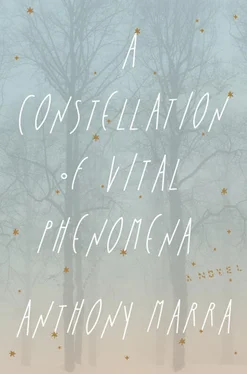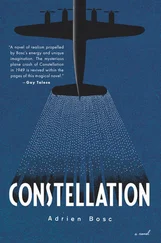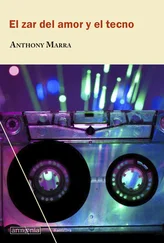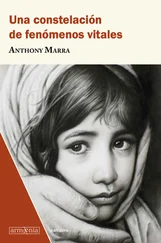He could have wrapped her in a white elasticated bedsheet, the nearest to a burial kafan in the depleted closet. The body was usually washed in scented water, but a martyr was buried unwashed, in the clothes she died in. He could have enshrouded her. She weighed so little. Even a man of his age could have carried her outside. In the backyard he might have set her on a cushion of snow. The ground was frozen. He could have plunged the spade head but the ground would hold. He knew no burial prayers, but he could have stood quietly and let canine panting mark the minute. He had spent his entire life burying, and unearthing, and reburying the dead, and he could have done it once more. The spade would have scraped through the frost. A shovelful of snow scattering on her torso. Three thousand years before a Russian empire existed, native tribes buried their dead in kurgans that grew so large they became part of the land, surviving the construction and collapse of subsequent civilizations. He would have thought of this as he entombed her. He would have shoveled until he couldn’t lift the spade, until the tomb reached his chest, until it compacted into a monument that would last until the spring thaw. But he didn’t have the energy to do more than close her eyelids, fluff the pillow beneath her head, and point her toward Mecca.
At home he picked three sets of clothes. Extra layers, heavy on wool; no longer could he rely on the comforts his son provided. He searched his closet for something to pack his clothes in but only found a laundry bag. He’d never thought to replace the brown suitcase after he buried it, never thought he would leave Chechnya again. At the center of his small bundle of clothes was the ruby-red scarf Mirza had unwound from her neck and placed in his hands, one afternoon, long ago. In the kitchen he packed alcohol swabs and syringes and insulin vials and all the food he could find in withered plastic shopping bags. On the kitchen table Ramzan’s keys radiated from their ring and he placed them in his pocket. He didn’t know where he would go. He had journeyed through Poland, Czechoslovakia, and Germany. He had, once, taken a victorious shit on a Reichstag commode. And from there to the Kazakh steppe, where, to the horizon, nothing sounded louder than the wind. He had traveled a quarter of the way around the globe without taking one step voluntarily. This was his home. For every barrack floor, muddy trench, outpost tarpaulin, bunker cot, and fallow field he had ever slept on, the memory of home was his only rest. Returning in 1956 he had vowed to never leave. Better to die here, he imagined, than endure another exile.
He crossed the hall to Ramzan’s room. Neither his kinzhal nor his boy had moved. If he could reach back he would hold his son, love his son, and untangle the knot his soul had become. He would find the ends. “Why are you my father?” the boy had asked one August afternoon, twenty seconds after asking, “Why is the sky blue?” and forty seconds before he asked, “Why do people get old?” They were sitting outside. Khassan had been teaching his son to eat shelled sunflower seeds and he held his breath long enough for the question to pass. “Why are you my father?” the boy asked again. It was two years before he stopped asking for a bike, five and a quarter before he stopped asking his father for anything. Khassan had never found an answer. If he could go back he would make one.
He closed Ramzan’s door behind him. The time for answering had ended and the peace of the afternoon articulated all he wanted for his son. The shopping bags, laundry bag, and two letters of safe passage waited at the front door, and as he reached for them, a question hit him like the face of a wall. Who was that woman and why had she come to deliver Akhmed’s answer? Had she known she would deliver him from his son? It didn’t matter. He would forever remember her as an angel dressed in an overcoat and scrubs, sent to stay his hand.
He locked the door behind him and crossed the packed snow to the red pickup. The dogs followed him, sniffing at the plastic bag of insulin, syringes, and chicken thighs. He set the bags in the passenger seat and turned to the dogs, six in all, lean-boned and matted and blind and bald.
“I’m leaving,” he said. His voice cracked with sorrow as the dogs tilted their snouts to him. Killing his son had seemed less reprehensible than abandoning these dogs. “I don’t know where I’m going. I don’t know what will happen.”
Tears fell down his cheeks. Two of the dogs ran after a hallucinated mouse, while the rest stared up at their broken benefactor with the same incomprehension that had made a home between his ears. “I can’t promise anything, but I will try to take care of you. If you want to come, I will take you.”
He climbed into the truck, set the two letters of safe passage in the glove box, and started the engine. He eased the brake and let the truck roll at a walking pace, waiting to see what would happen. In the rearview the dogs licked each other, tumbled on the ground, and went on in a world without him. Gravel shot back when he pushed the accelerator and the ears of the bald dog perked, and when she turned the other dogs noticed, and their snouts swiveled toward the truck as they galloped as one animal, a twenty-four-legged, twelve-eared beast, racing to reclaim their seventh head. He unlatched the back and one by one they jumped into the bed of the pickup truck, Sharik last.
Passing beneath the portraits of the disappeared he saw them as if for the first time. No one else would remember the artist’s face, but he would. When he reached the end of the block, he kept driving. When he reached the end of the village, he kept driving. Wind tossed the dogs’ tongues and they shook their heads wonderfully. The serrated ridge of mountains cut into the horizon and he drove toward it. The passing refugees had speculated wildly, believing any rumor large enough to hope on. He didn’t know what lay on the other side. He didn’t know that the disease that would in nine years erase every memory but the headlights was already brewing among his neurons. He didn’t know that his son would live alone in the village for three grief-stricken years, wondering and waiting for his return before moving to a mountain hamlet, where he would keep wondering what had happened to his father, without ever finding out, for another fifty-seven years. Khassan didn’t know and he drove. He was seventy-nine years old. He was beginning a new life.

“IF YOU COULD go back, would you leave London?” Natasha had asked the question on a cool Tuesday morning in March 1998. They were on good terms that month, sharing the last drags of a cigarette in the hospital parking lot as loose debris rustled under what seemed too pleasant a shade of sky. “If you could go back, would you leave London?” Of the thousands of times she had considered and still would consider the question, that had been the only time it had been posed as if an answer lived on the other side of it. “If you could go back …” There was a time when she had indulged in the hypothetical for hours a day, plotting the map that had led her here. But no life is a line, and hers was an uneven orbit around a dark star, a moth circling a dead bulb, searching for the light it once held.
The visit to Akhmed’s had taken longer than she anticipated, and as she parked the truck and crossed the lot, the premonition of impending disaster pressed on her. But Deshi’s heavy, dozing breaths were the only sound in the waiting room. Sonja jiggled her chair. The knitting needles began working in her hands before Deshi opened her eyes.
Читать дальше












